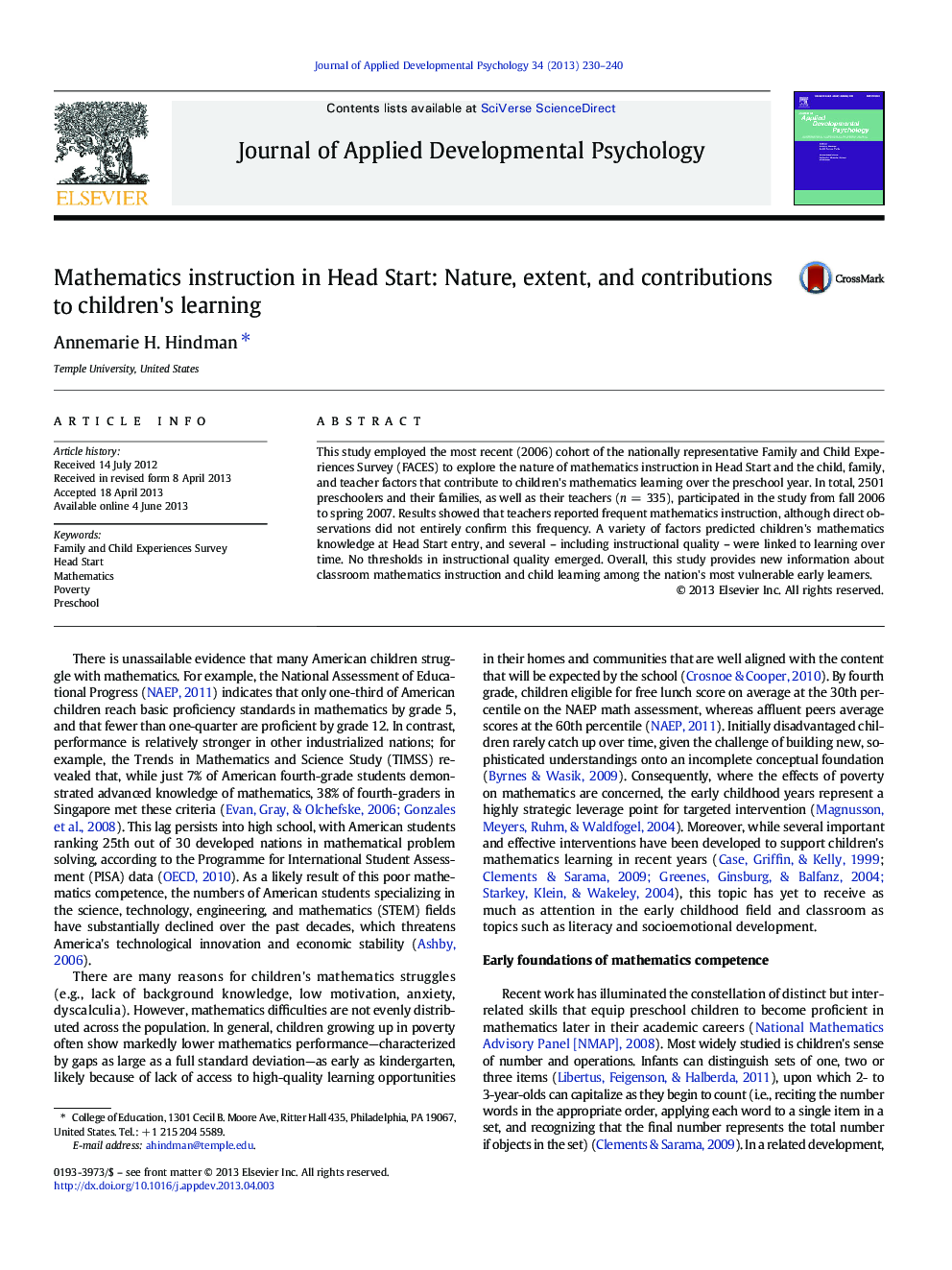| Article ID | Journal | Published Year | Pages | File Type |
|---|---|---|---|---|
| 359732 | Journal of Applied Developmental Psychology | 2013 | 11 Pages |
•We explored the mathematics learning of preschoolers in Head Start.•Preschoolers made modest gains in mathematics during Head Start.•Math skills at preschool entry were predicted by child and family factors.•Gains during Head Start were modestly predicted by classroom instructional quality.
This study employed the most recent (2006) cohort of the nationally representative Family and Child Experiences Survey (FACES) to explore the nature of mathematics instruction in Head Start and the child, family, and teacher factors that contribute to children's mathematics learning over the preschool year. In total, 2501 preschoolers and their families, as well as their teachers (n = 335), participated in the study from fall 2006 to spring 2007. Results showed that teachers reported frequent mathematics instruction, although direct observations did not entirely confirm this frequency. A variety of factors predicted children's mathematics knowledge at Head Start entry, and several – including instructional quality – were linked to learning over time. No thresholds in instructional quality emerged. Overall, this study provides new information about classroom mathematics instruction and child learning among the nation's most vulnerable early learners.
